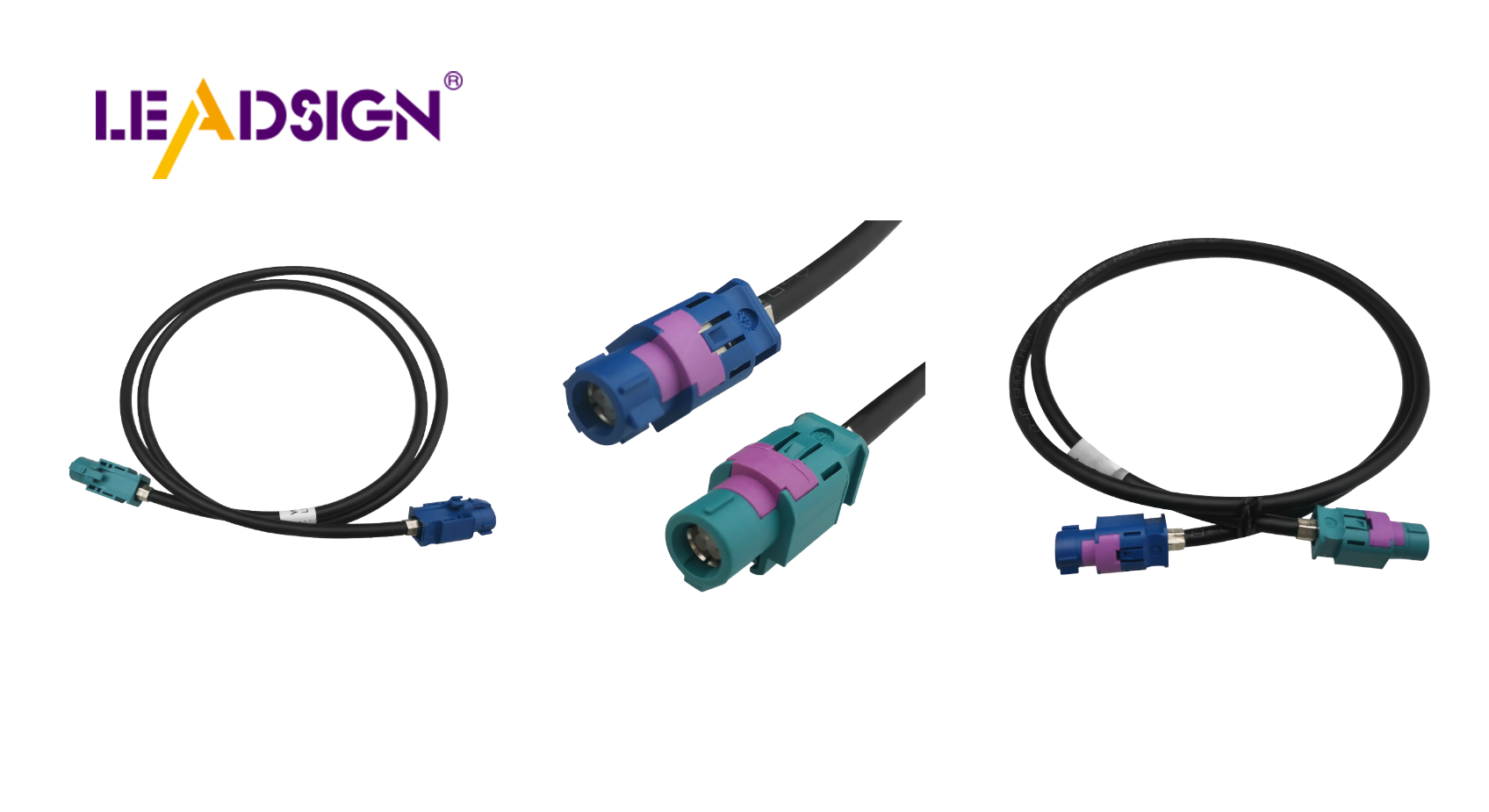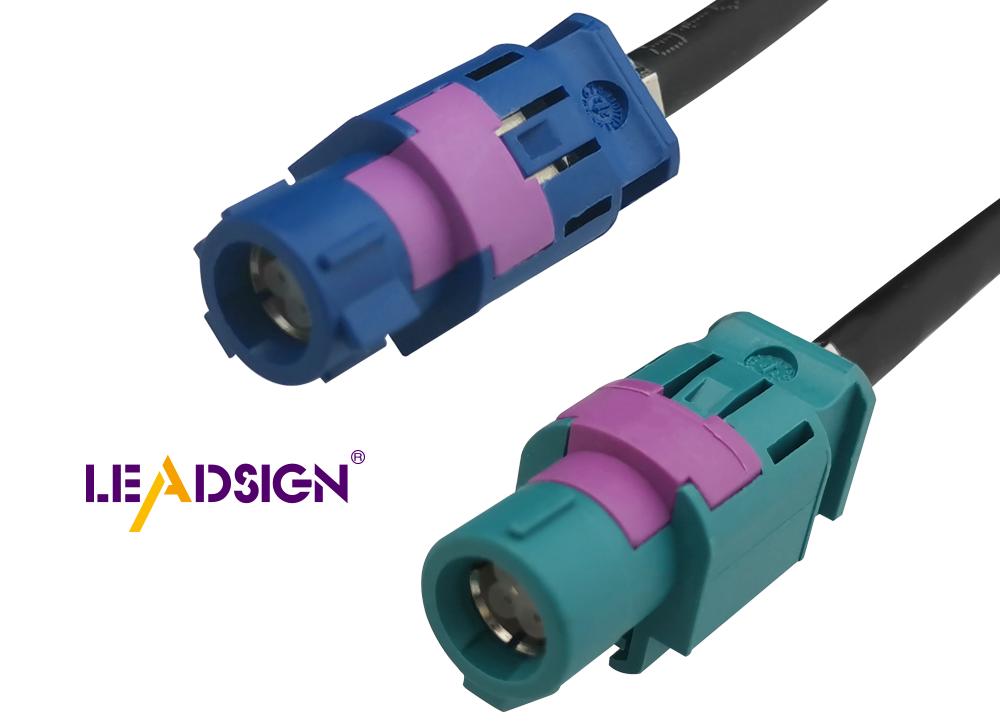Understanding Automotive Wiring Connector Types

Automotive electrical connectors types are crucial components in modern cars. They play a vital role in ensuring proper wire connections, which are essential for the functionality and safety of vehicles. Faulty connectors can lead to issues such as malfunctioning wires, posing risks like fires. These connectors safeguard the car's wiring system by preventing issues like bent pins or exposed wires. Additionally, they reduce strain on the wires, promoting optimal vehicle performance. By utilizing the appropriate automotive electrical connectors types, cars become more dependable and efficient, enhancing both vehicle reliability and safety.
Overview of Automotive Electrical Connectors Types
Definition and Purpose
What are Wiring Connectors?
Wiring connectors link parts in car systems. They help send power and signals between different car parts. These connectors make sure the car works well. Without them, car parts wouldn't work together right, causing problems.
Why are they essential in automotive systems?
Connectors keep cars safe and working well. They send signals to different car parts like the engine and radio. This helps the car run smoothly. Choosing good connectors means looking at things like size and strength.
Basic Components of Connectors
Pins and Sockets
Pins and sockets are key parts of connectors. Pins fit into sockets to make a connection. This is important for things that need lots of power, like headlights. Good pins and sockets mean a strong connection.
Housing and Insulation
Housing covers connector parts from harm. It's made from strong stuff like plastic. Insulation keeps out water and dirt, helping connections last long. Good housing is needed for tough places, like in cars.
Types of Automotive Electrical Connectors

Blade Connectors
Characteristics and Uses
Blade connectors are flat metal pieces. They fit into slots. These connectors are strong and safe. They work well with high power. You can connect or disconnect them fast. No special tools are needed. Their design helps electricity flow easily in cars.
Common Applications in Vehicles
Cars use blade connectors a lot. They link wires in lights like headlights and tail lights. They also connect power to car gadgets. These connectors stay firm even when the car shakes.
Ring and Spade Connectors
Features and Benefits
Ring and spade connectors have special uses in cars. Rings go over bolts for a tight hold. Spades look like forks, making them easy to put on or take off. Both types keep connections strong, even if the car moves.
Installation Techniques
Putting on ring and spade connectors needs care. Slide rings over bolts, then tighten with nuts. For spades, place under screws or bolt heads. Crimp wires well for good contact to stop loose links.
Butt Connectors
Advantages and Limitations
Butt connectors join two wires together end-to-end securely. They're great for fixing or adding wires in cars but not for frequent changes since they stay put once connected.
Typical Use Cases
In cars, butt connectors fix broken wires easily without much fussing around with rewiring everything else.
Picking the Right Connector
Choosing the right automotive electrical connectors is important for car safety and performance. Good connectors help power and signals move smoothly between parts, keeping cars reliable. Here are some things to think about when picking a connector.
Things to Think About
Electrical Needs
Know the electrical needs when picking automotive electrical connectors. Each must handle the car's voltage and current. For example, headlights need strong connectors for high power. Matching them with car specs stops overheating and problems.
Tough Conditions
Car connectors face tough conditions like wetness, dust, and heat changes. Sealed ones protect against these, good for engine areas. Strong housing and insulation make them last long in hard spots.
Selection Tips
Wiring Match
Connectors should match the car's wires well. They need to fit wire size and type used in cars. Wrong matches can cause weak links and more resistance, hurting efficiency. Snug fits boost connection reliability.
Strong and Trustworthy
Pick strong, trustworthy automotive electrical connectors. Materials like nylon last long against wear. Reliable ones cut down on failures, helping car safety and work better.
Expert Advice:
Connector Experts stress choosing correct connectors for safe cars: "Correct ones are key for vehicle reliability, performance, and safety."
By thinking about these tips, people can choose good automotive electrical connectors. This keeps their cars running well and safely on the road.
Common Questions and Concerns
FAQs about Wiring Connectors
How to identify connector types?
To know automotive electrical connectors types, look at their shape and size. Blade connectors are flat and fit into slots. Ring connectors have round ends that go over bolts. Each type has a special job in the car's system. To find them right, check the car's manual or ask an expert. Looking closely can help too, as many have unique looks.
What are the signs of a faulty connector?
Bad automotive electrical connectors can cause problems in cars. Signs include flickering lights or power loss. Sometimes electronics stop working right. You might see rust, bent pins, or loose parts when you look at them. These happen from water, dirt, or wear over time. Fixing these fast stops more damage and keeps the car safe.
Troubleshooting Connector Issues
Common Problems and Solutions
Automotive electrical connectors can have issues like rust or loose parts. Rust comes from water and makes connections weak. Use connector grease to keep water away and stop rusting. Loose parts may be from shaking or bad fitting. Tighten them well to fix it. Broken pins need changing to work again.
Expert Insight:
Nye Lubricants says "mating force, moisture, corrosion, and fretting" often break connectors." Good care stops these problems for longer-lasting parts.
Maintenance Tips
Taking care of automotive electrical connectors is important for good work:
Inspect Regularly: Look for wear or rust.
Clean Carefully: Use a soft brush to clear dirt.
Apply Grease: A little grease keeps out water.
Secure Connections: Make sure all are tight so they don't shake loose.
Following these tips helps make connectors last longer and keep cars running well.
Choosing the right car connectors is very important. They help keep cars safe and working well. Connectors link different parts, like the engine and sensors. This helps the car run smoothly.
Knowing about different connectors helps people pick the best ones. Good choices make cars work better and safer.
Using this knowledge in real life keeps car connections strong. Connectors are key for good communication between systems.
In short, car connectors are crucial for smooth and reliable operation in modern vehicles.
See Also
Exploring HSD Connectors in the Automotive Sector
Significance of Fakra Connectors in Contemporary Cars
Navigating Ford Fakra Connectors

